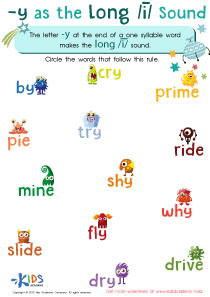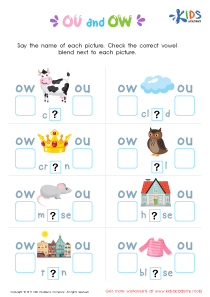Reading fluency Normal Long Vowels Worksheets for Ages 6-9
3 filtered results
-
From - To
Enhance your child's reading skills with our "Reading Fluency Normal Long Vowels Worksheets for Ages 6-9". These engaging worksheets focus on mastering long vowel sounds to build a strong foundation in reading. Perfect for young learners, each worksheet is designed to provide practice in recognizing and pronouncing long vowels, boosting reading fluency and confidence. Ideal for both classroom and home use, our printable resources make learning fun and effective for kids ages 6-9. Unlock the joy of reading with these expertly crafted worksheets from Kids Academy, tailored to support essential learning goals and promote academic success.
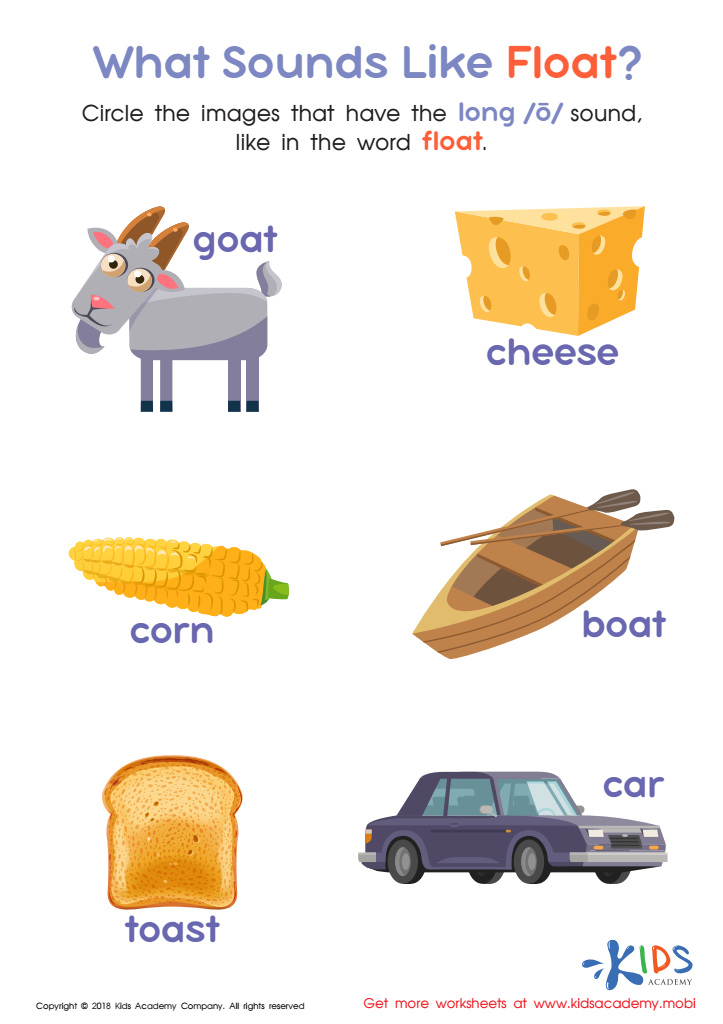

What Sounds Like Float? Worksheet
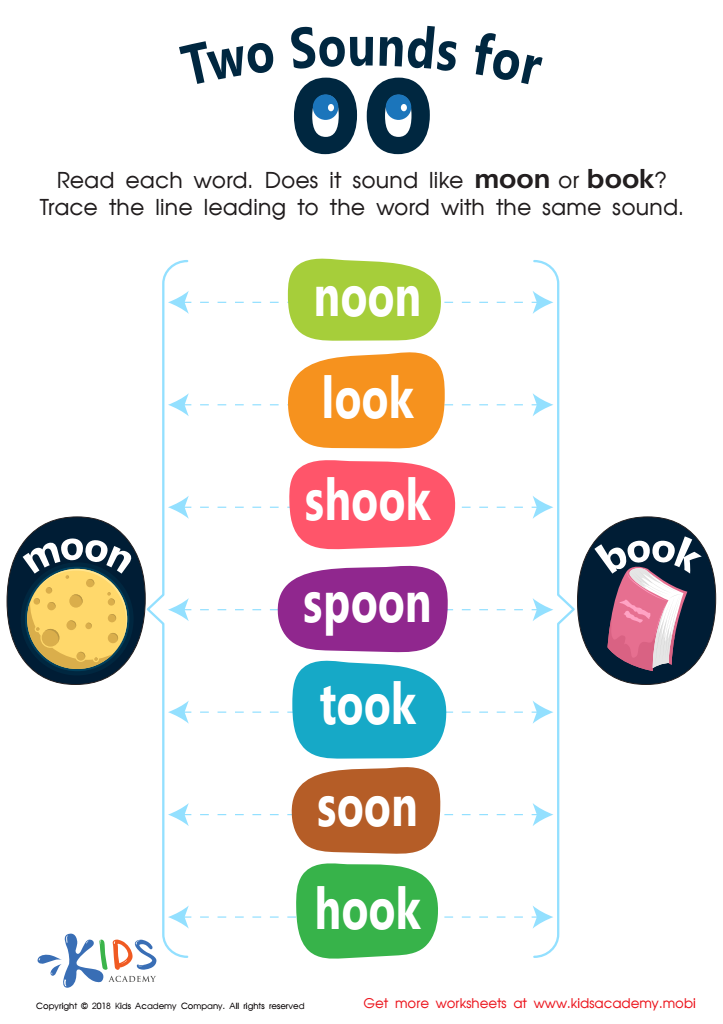

Two Sounds for OO Worksheet
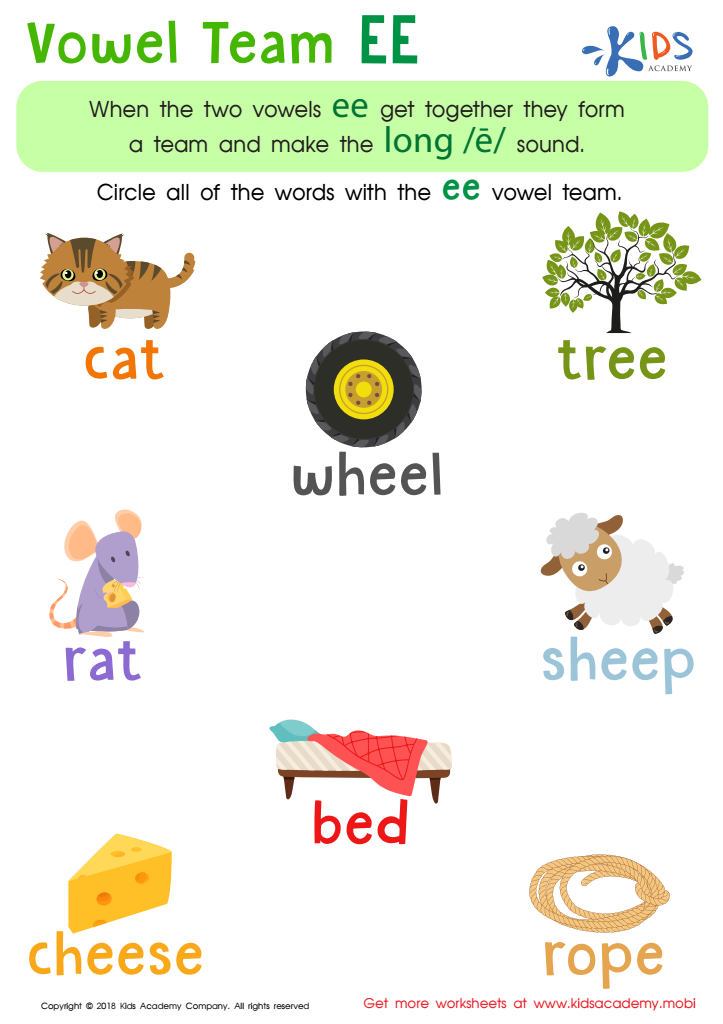

Reading: Vowel Team EE Worksheet
Parents and teachers should care about reading fluency with normal long vowels for children ages 6-9 because it is foundational for literacy development at this critical stage. Early reading fluency entails the ability to read with speed, accuracy, and proper expression and includes understanding vowel sounds, which are crucial building blocks of English phonics. Long vowels (like the 'a' in 'cake' or 'i' in 'kite') can be particularly tricky for young readers.
Achieving fluency with normal long vowels aids children in decoding words more efficiently. This efficiency alleviates cognitive load, allowing them to focus on comprehension rather than just word recognition. Easing the reading process early on fosters a positive attitude toward reading, which is crucial for developing strong, lifelong literacy skills. Struggling with long vowels and other fundamental aspects of phonics can lead to reading frustration, disengagement, and ultimately, lower academic achievement.
Consistent practice and supportive guidance from parents and teachers can significantly improve a child's phonological awareness and reading fluency. When kids master these early phonics skills, they are better prepared to tackle increasingly complex texts, ensuring that they stay on track with their educational development. Ensuring proficiency in reading fluency with normal long vowels sets the stage for confident, skilled readers, capable of academic progress and critical thinking.
 Assign to My Students
Assign to My Students





